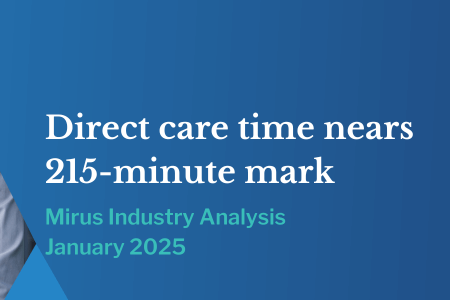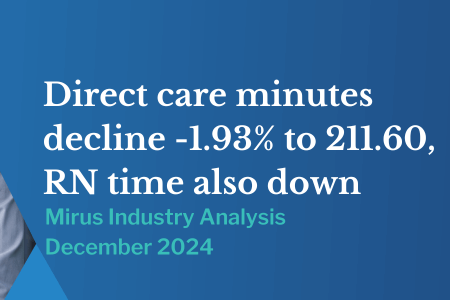Providers lack confidence in balancing compliance with financial sustainability
April 16, 2025 | Aged Care Finance

By Susan Howarth, Head of Marketing
As part of our “How care minutes are shaping the future of aged care” webinar, a survey conducted ahead of the 2025 care minute compliance changes gathered valuable insights from aged care providers across Australia. The survey revealed a range of concerns and priorities related to implementing care minute compliance strategies. The online poll included responses from 269 participants across 248 organisations, with 30% of respondents holding executive or board-level positions. The findings emphasised the challenges providers face in aligning compliance with operational and financial sustainability goals.
The survey results indicated that while some providers felt confident in managing compliance requirements, many expressed uncertainty, particularly regarding the broader implications of these changes on their operations and financial strategies.
Here’s a closer look at the survey findings:
Staffing challenges and compliance barriers: The survey revealed that workforce challenges, rather than financial constraints, were the leading barriers to compliance. The top concern for many respondents was the shortage of available staff, with 43% citing staffing shortages as their primary challenge. Another 41% pointed to management time and the administrative burden of meeting compliance requirements as key obstacles. Only 9% of providers identified financial constraints as their biggest hurdle, indicating that funding may not be the sole issue, but the efficient deployment of resources is critical.
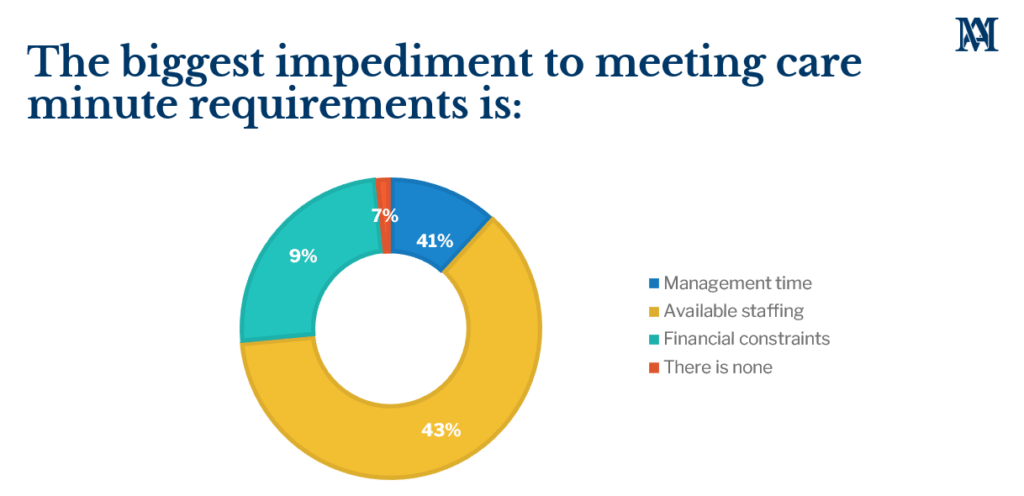
Confidence in maintaining financial sustainability: Financial sustainability in the face of compliance requirements remains a significant concern. Only 38% of respondents felt confident that their organisations could remain financially viable while meeting the new care minute requirements. A larger proportion, 40%, expressed uncertainty, with 22% outright disagreeing or strongly disagreeing with the notion that compliance could be financially sustainable. This highlights the need for providers to adopt strategic financial and operational strategies to achieve both compliance and profitability.
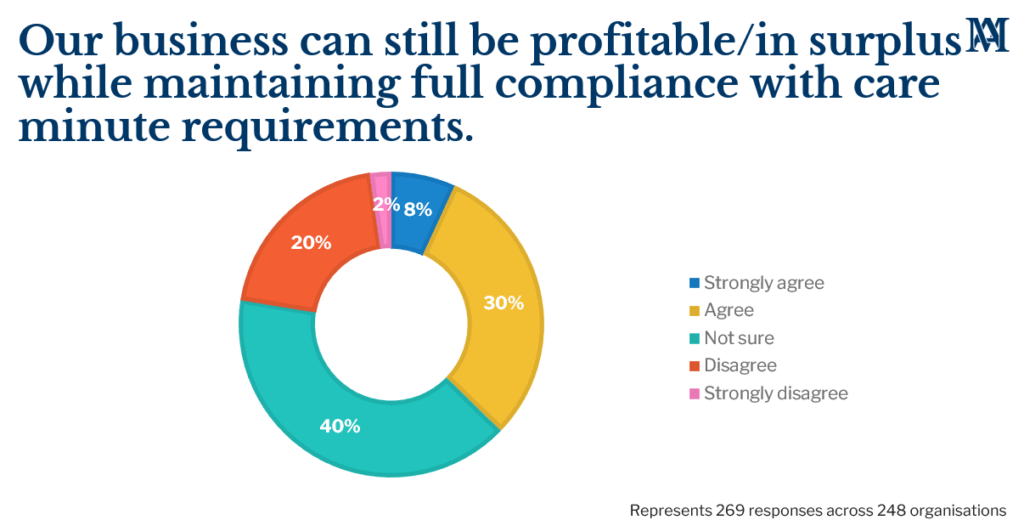
Workforce planning as a strategic priority: Among the surveyed providers, there was a strong focus on workforce planning as a key strategy to meeting care minute compliance. While 83% of respondents agreed that increasing staffing levels improves care outcomes, many acknowledged that staffing alone would not solve the challenges. Effective workforce deployment, supported by operational efficiency, technological solutions, and best practices in workforce management, was seen as crucial to achieving compliance.
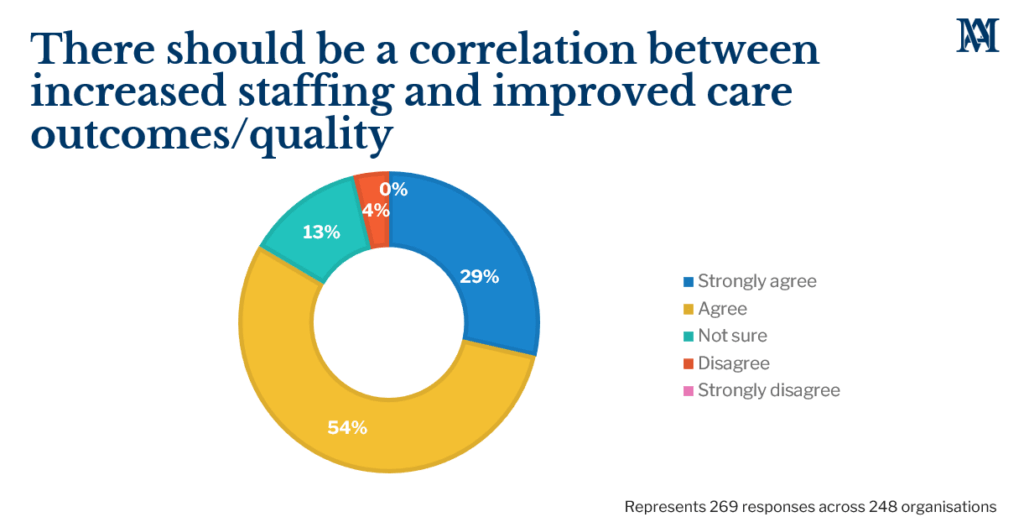
Looking ahead: Strategic adaptation and data-driven decisions
Looking ahead, it’s clear that aged care providers will look to adopt a more strategic, data-driven approach to workforce and operational management. Effective workforce planning, along with leveraging technology to streamline operations, will be key for meeting compliance deadlines and ensuring high-quality care delivery. You can watch the full recording here.
How we can help
At Mirus, we’ve developed a suite of tools to help aged care providers stay on top of funding and care minute compliance. Mirus Metrics gives you real-time insights into your AN-ACC performance and care minute requirements, while Care Minute Manager tracks daily care delivery against your quarterly targets to reduce compliance risk. And with the Cost of Gap report, you get a tailored snapshot of where funding and care minutes may be out of alignment—so you can take action with confidence.

